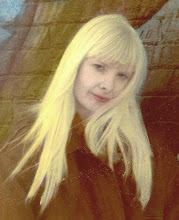On Nov. 20, 1945, 24 Nazi leaders went on trial before an international war crimes tribunal in Nuremberg, Germany.

On the opening day of the trial, the twenty-one indicted war trial defendants took their seats in the dock at the rear of the sage-green draped and dark paneled room. Behind them stood six American sentries with their backs against the wall. At 10 a.m., the marshal shouted, "Attention! All rise. The tribunal will now enter." The judges from the four countries walked through a door and took their seats at the bench. Sir Geoffrey Lawrence rapped his gavel. "This trial, which is now to begin," said Lawrence, "is unique in the annals of jurisprudence." The Major War Figures Trial was underway in Nuremberg.
The trial began with the reading of the indictments. The indictments concerned four counts. All defendants were indicted on at least two of the counts; several were indicted on all four counts. Count One, "conspiracy to wage aggressive war," addressed crimes committed before the war began. Count Two, "waging an aggressive war (or "crimes against peace"), addressed the undertaking of war in violation of international treaties and assurances. Count Three, "war crimes," addressed more traditional violations of the laws of war such as the killing or mistreatment of prisoners of war and the use of outlawed weapons. Count Four, "crimes against humanity," addressed crimes committed against Jews, ethnic minorities, the physically and mentally disabled, civilians in occupied countries, and other persons. The greatest of these crimes against humanity was, of course, the mass murder of Jews in concentration camps--the so-called "Final Solution." For an entire day, defendants listened as prosecutors read a detailed list of the crimes they stood accused of committing.
The last stage of the long trial was a defense of the Nazi organizations, followed by final statements by each of the defendants. On Saturday, August 31, the first of the indicted defendants, Hermann Goering, moved to the middle of the dock where a guard held before him a microphone suspended from a pole. Goering told the court that the trial had been nothing more than an exercise of power by the victors of a war: justice, he said, had nothing to do with it. Rudolf Hess offered an odd final statement, filled with references to visitors with "strange" and "glassy" eyes. He ended by saying it had been his "pleasure" to work "under the greatest son which my people produced in its thousand-year history." Some defendants offered apologies. Some wept. Albert Speer offered a warning. He spoke of the even more destructive weapons now being produced and the need to eliminate war once and for all. "This trial must contribute to the prevention of wars in the future," Speer said. "May God protect Germany and the culture of the West."
On Tuesday, October 1, the twenty-one defendants filed into the courtroom for the last time to receive the verdict of the tribunal. Sir Geoffrey Lawrence told the defendants that they must remain seated while he announced the verdicts. He began with Goering: "The defendant, Hermann Goering, was the moving force for aggressive war, second only to Adolf Hitler....He directed Himmler and Heydrich to 'bring about a complete solution of the Jewish question.'" There was no mitigating evidence. Guilty on all four counts. Lawrence continued with the verdicts. In all, eighteen defendants were convicted on one or more count, three (Schact, Von Papen, and Fritzsche) were found not guilty. The three acquitted defendants did not have long to enjoy their victory. In a press room surrounded by reporters, they received from a German policeman warrants for their arrests. They were to next be tried in German courts for alleged violations of German law.
Sentences were announced in the afternoon for the convicted defendants. Again, Lawrence began with Goering: "The International Military Tribunal sentences you to death by hanging." Goering, without expression, turned and left the courtroom. Ten other defendants (Ribbentrop, Keitel, Rosenberg, Frank, Frick, Kaltenbrunner, Streicher, Sauckel, Jodl, and Seyss-Inquart) were also told they would die on a rope. Life sentences were handed down to Hess, Funk, and Raeder. Von Schirach and Speer received 20-year sentences, Von Neurath a 15-year sentence, while Doenitz got a 10-year sentence. The trial had lasted 315 days.
Over the next two weeks, the condemned men met for the last times with family members and talked with their lawyers about their last-ditch appeal to the Allied Control Council, which had the power to reduce or commute sentences. On October 9, the Allied Control Council, composed of one member from each of the four occupying powers, met in London to discuss appeals from the IMT. After over three hours of debate, the ACC voted to reject all appeals. Four days later, the prisoners were informed that there last thin hope had disappeared.
On October 15, the day before the scheduled executions, Goering sat at the small desk in his prison cell and wrote a note:
"To the Allied Control Council:
"I would have had no objection to being shot. However, I will not facilitate execution of Germany's Reichsmarschall by hanging! For the sake of Germany, I cannot permit this. Moreover, I feel no moral obligation to submit to my enemies' punishment. For this reason, I have chosen to die like the great Hannibal."
Then Goering removed a smuggled cyanide pill and put it in his mouth. At 10:44 p.m., a guard noticed saw Goering bring his arm to his face and then began making choking sounds. A doctor was called. He arrived just in time to see Goering take his last breath.
A few hours later, at 1:11 a.m. on October 16, Joachim von Ribbentrop walked to the gallows constructed in the gymnasium of the Palace of Justice. Asked if he had any last words, he said, "I wish peace to the world." A black hood was pulled down across his head and the noose was slipped around his neck. A trapdoor opened. Two minutes later, the next in line, Field Marshal Keitel, stepped up the gallows stairs. By 2:45 a.m., it was all over.




No comments:
Post a Comment